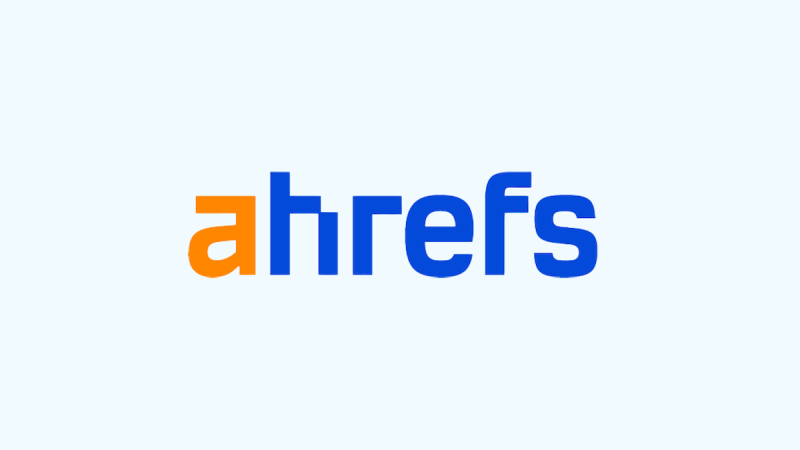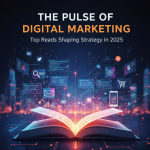Introduction
By 2025, artificial intelligence is the present rather than the future. Leading technology giants Microsoft and Meta are spearheading the competition with investments amounting to billions of dollars. These businesses are reinventing the possibilities with their AI copilots, virtual assistants, and metaverse applications. However, why are Microsoft and Meta making such large investments in AI? What may they benefit from? And what effects does Big Tech’s enormous investment in AI have on the rest of us?
Let’s examine the true narrative of this AI gold rush by looking past the headlines.
Why Microsoft & Meta Are Betting Big on AI
AI has emerged as today’s defining tech battleground, much like cloud computing a decade ago or smartphones before that. For Microsoft and Meta, this isn’t just another trend it’s a foundational shift they believe will define the future of technology and economic leadership.
Microsoft is embedding AI deeply across its products, from Office 365 to Azure, leveraging its partnership with OpenAI to lead in generative AI through tools like Copilot and ChatGPT integrations. Meta, on the other hand, is investing in creating a smarter, more immersive metaverse, focusing on lifelike avatars, real-time language translation, and advanced language models.
While their approaches differ, both companies are aligned in their belief that AI will shape the next era of digital engagement. Their massive investments are not about chasing headlines they’re about gaining control over the platforms that will drive the future.
How Much Are They Actually Spending?
Let us discuss the figures, as the scale is astonishing.
- It has committed over $13 billion specifically to OpenAI.
- Meta is said to have earmarked upwards of $35 billion in 2025 for AI, data centers, and computing capabilities.
This encompasses the training of extensive models, recruiting leading AI researchers, developing proprietary chips (such as Meta’s MTIA), and operating large-scale cloud infrastructure. The competition has transitioned from conceptualization to implementation, and the expenses are staggering.
This magnitude of AI expenditure by major technology firms indicates that we have moved well beyond the phase of experimentation. AI has become integral to the strategies of the world’s most influential corporations.
From Research Labs to Real Products
The era when artificial intelligence was confined to academic literature and research laboratories is now behind usAI products are being deployed by Microsoft and Meta at a never-before-seen rate:
- Microsoft’s Copilot has already been incorporated into Word, Excel, and Outlook elevating productivity tools to the status of intelligent assistants.
- Azure provides AI infrastructure and APIs to enterprises across the globe.
- Meta’s AI-driven image generation tools, advanced video editing capabilities, and Meta LLaMA language models are being integrated into Instagram, WhatsApp, and Facebook.
- Both organizations are developing AI-enhanced content moderation, coding assistants, and platforms for developers.
This shift from AI research to commercially viable products is crucial. The substantial investments in AI by major technology firms are now producing tools that are revolutionizing our methods of working, communicating, and creating.
What’s the End Game in This AI Race?
AI is more than a feature it represents an entire ecosystem.Companies that oversee the internet’s AI layer will:
- Take charge of the upcoming generation of platforms (such as Microsoft Office or Meta’s Metaverse).
- Seize opportunities in enterprise and developer sectors
- Impact education, healthcare, and national defense.
- Promote digital marketing, online shopping, and cloud solutions.
That is the reason both Microsoft and Meta are competing for dominance. The victor or potentially the joint leader is positioned to dominate a significant portion of the digital economy.
The underlying motivation for the extraordinary AI expenditures by major tech companies is a battle for the essential framework of our digital future.
Are They Competing or Collaborating?
Microsoft and Meta might seem like rivals at first glance. But the scene in 2025 shows a mix of competition and collaboration:
- Microsoft has provided Meta access to its Azure cloud platform for the purpose of training LLaMA models.
- Recently, Meta has open-sourced several of its AI models, enabling Microsoft and other entities to build upon them.
- Both organizations depend on NVIDIA GPUs and AI chips, indicating a mutual reliance on infrastructure.
Nevertheless, competition remains fierce in critical sectors:
- Microsoft emphasizes enterprise solutions and developer tools.
- In contrast, Meta concentrates on consumer interaction, advertising, and the metaverse.
- Although they collaborate at times, their overarching objectives diverge and the competition is far from concluded.

What’s Next for Big Tech’s AI Strategy?
Looking forward, we can anticipate:
- Custom AI Hardware: Both organizations are working on chips to lessen dependence on NVIDIA and enhance AI workloads.
- Open-Source vs Proprietary Models: Meta advocates for open-source; Microsoft supports OpenAI’s proprietary strategy.
- Regulatory Scrutiny: Governments are starting to scrutinize the magnitude and ethics of AI growth.
- AI-Powered Workforce Tools: Anticipate an increase in AI applications in recruitment, human resources, and team collaboration tools.
- Next-Gen Assistants: Envision advancements beyond Alexa and Siri AI that can reason, strategize, and operate with greater autonomy.
This new era will also transform employment, education, and digital rights. As always, the investment in AI by major technology firms will be the driving force propelling everything forward.
Conclusion
Microsoft and Meta’s substantial investments in AI are not merely technological experiments; they represent strategic initiatives that will shape the future of human-machine interaction over the next 50 years. As these industry leaders develop the infrastructure necessary for various applications, including remote work and global commerce, their influence on society continues to expand.
In an era where AI is increasingly affecting hiring practices, automation, and policy-making, it is essential to remain well-informed. AI has the potential to improve workplace productivity, but job search tools like Wiraa make it easier. As a reliable remote job platform, Wiraa enables professionals to safely, transparently, and without borders access global opportunities.




